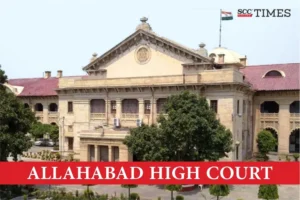Allahabad High Court: In a writ petition filed under Article 226 of the Constitution of India challenging the notifications issued by the Assistant Regional Transport Officer (‘ARTO’) (Administration/Registration Authority) of Mathura and Agra banning the registration of e-Rickshaw and e-Auto in Mathura and Agra, respectively, in exercise of powers under Rule 178 of the U.P. Motor Vehicle Rules, 1998, a Division Bench comprising of Anjani Kuman Mishra* and Jayant Banerji,JJ., while setting aside the impugned notifications , held that while the restrictions imposed under Rule 178 indeed pertain to regulating the speed or usage of motor vehicles, they do not confer upon State the authority to prohibit the registration of new vehicles. Consequently, the impugned restriction exceeds the confines of Rule 178 of the U.P. Motor Vehicles Rules, 1998, thus beyond ARTO’s jurisdiction.
The Court noted that the restriction has been imposed on account of mushrooming number of e-Rickshaw both in Agra and Mathura leading to incessant traffic jams.
After examining Rule 178 of the U.P. Motor Vehicles Rules, 1998, the Court said that the restrictions contemplated by Rule 178 are regarding the speed or regarding restricting or prohibiting use of motor vehicles, generally or any particular class or classes in any area or any road. This provision does not contemplate or empowers the State to ban registration of new vehicles. Thus, the Court held that the impugned restriction is therefore, beyond the scope of Rule 178 and hence, unsustainable.
Thus, the Court held that that apart from the restriction on speed on roads and area of operation, no other restriction has the sanction of law. Therefore, the impugned orders insofar as they ban registration of new e-rickshaws etc is without legal sanction.
The Court remarked that, nothing prevents the legislature or the rule making authority from bringing about suitable enactments/amendments in the existing statute or the rules framed therein to achieve the desired objectives which is also the mandate of Article 19(2) of the Constitution. However, the situation howsoever bad, cannot empower the authorities to exercise power or jurisdiction which they do not possess under the existing law or the rules.
[Shree Vrindavan Auto Sales v. State of U.P., 2024 SCC OnLine All 1330, Order dated 19-04-2024]
Advocates who appeared in this case :
Counsel for Petitioners : Advocate Nirvikalp Pandey, Advocate Prarabdha Pandey, , Advocate Kumar Sreshtha, Advocate Dinesh Singh Yadav, , Advocate Rohit Nandan Pandey, Advocate Rahul Chaudhary, , Advocate Jigar Khare
Counsel for Respondents : Chief Standing Counsel

